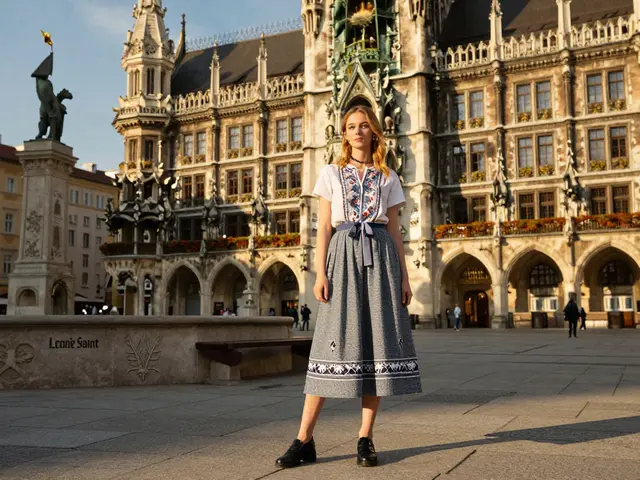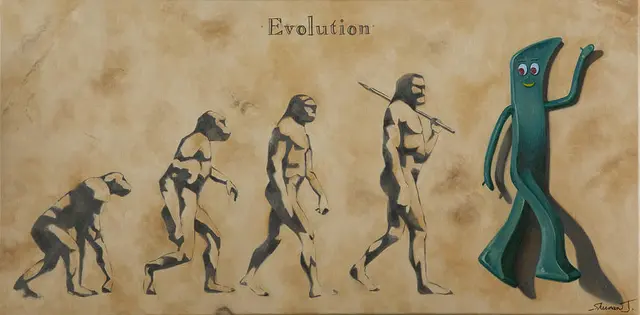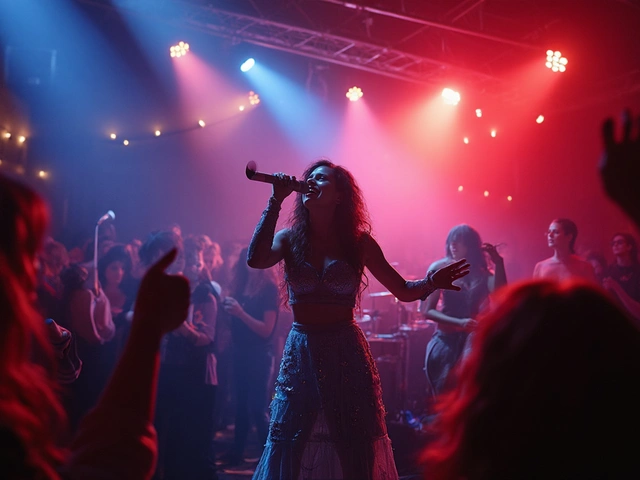How Melanie Müller Took Munich by Storm
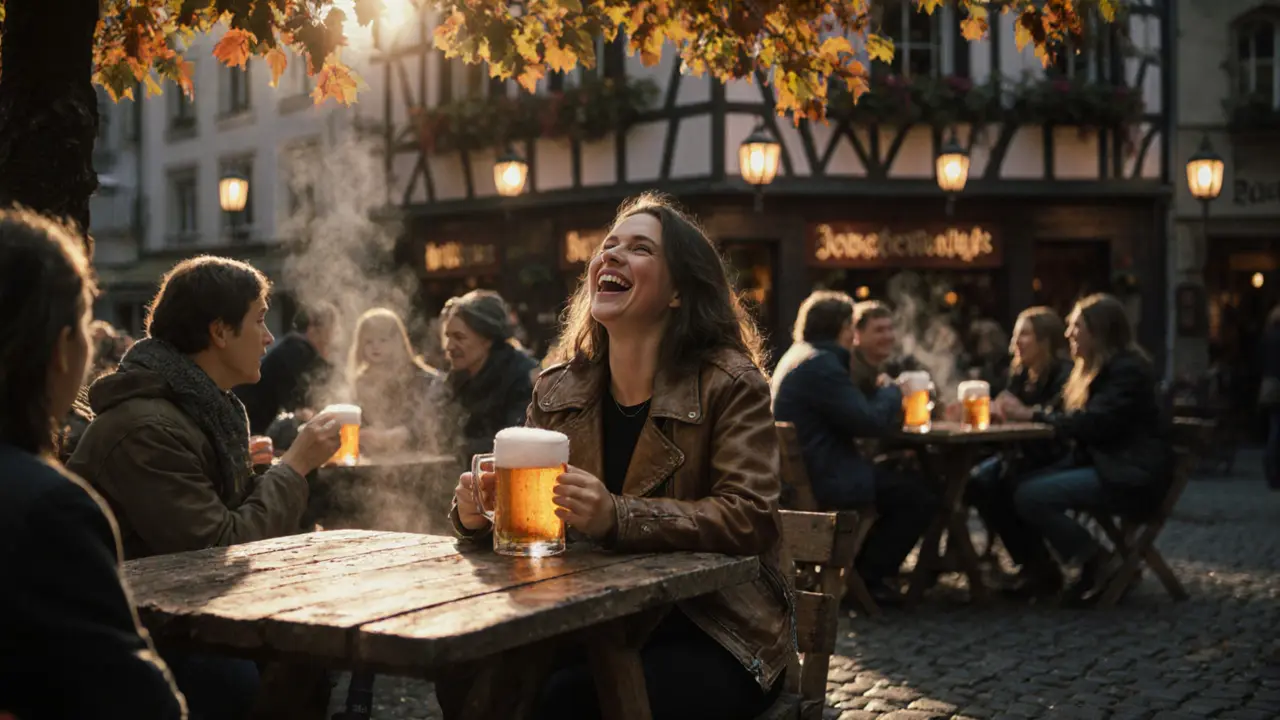
- Maximilian Von Stauffenberg
- 13 November 2025
- 0 Comments
Munich didn’t expect her. Not the way she showed up - no press release, no agency push, no red carpet. Just Melanie Müller, walking into a small beer garden in Schwabing one October evening in 2023, wearing a vintage leather jacket, holding a pint of Weissbier, and laughing louder than anyone else in the room. Within six months, she was everywhere. Not because she chased attention, but because attention chased her.
She Didn’t Try to Be Famous
- She started posting short videos of herself talking to strangers in English and German on Instagram Reels - no filters, no lighting setup, just her and the city.
- One clip, filmed outside the English Garden, went viral: she asked ten people what they loved most about Munich. Nine said "the beer." The tenth, an 82-year-old woman named Helga, said, "The way the light hits the Isar River in autumn." Melanie didn’t edit it. She just posted it. It got 1.2 million views in 72 hours.
- She didn’t follow trends. She didn’t do challenges. She didn’t wear branded clothes. She just showed up, listened, and asked real questions.
People started calling her "die echte Münchnerin" - the real Munchener. Not because she was born there, but because she treated the city like home. She learned how to pronounce "Lederhosen" correctly on the third try. She learned which baker made the best Apfelstrudel before 7 a.m. She knew the barista at Café Glockenspiel by name, and he started saving her a seat every morning.
The City Responded
Local businesses didn’t pay her. She didn’t ask for money. But they noticed her. The family-run bookshop on Tal street started stocking German poetry she mentioned in her posts. The jazz club in Gasteig began inviting her to host open-mic nights. A small brewery in Nymphenburg created a limited-edition beer called "Melanie’s Mischief" - no logo, no marketing, just a handwritten label on the bottle. It sold out in three days.
By spring 2024, the Munich city council quietly invited her to sit in on a public meeting about pedestrian zones in the Altstadt. Not as a guest speaker. Not as a celebrity. Just as a resident. She showed up in jeans, sat in the back, and said: "You’re fixing the sidewalks, but you’re forgetting the people who sit on them. What if we put benches where people actually stop to talk?"
Two months later, three new benches appeared - one near the old tram stop, one beside the fountain at Marienplatz, and one right outside the beer garden where she first walked in.
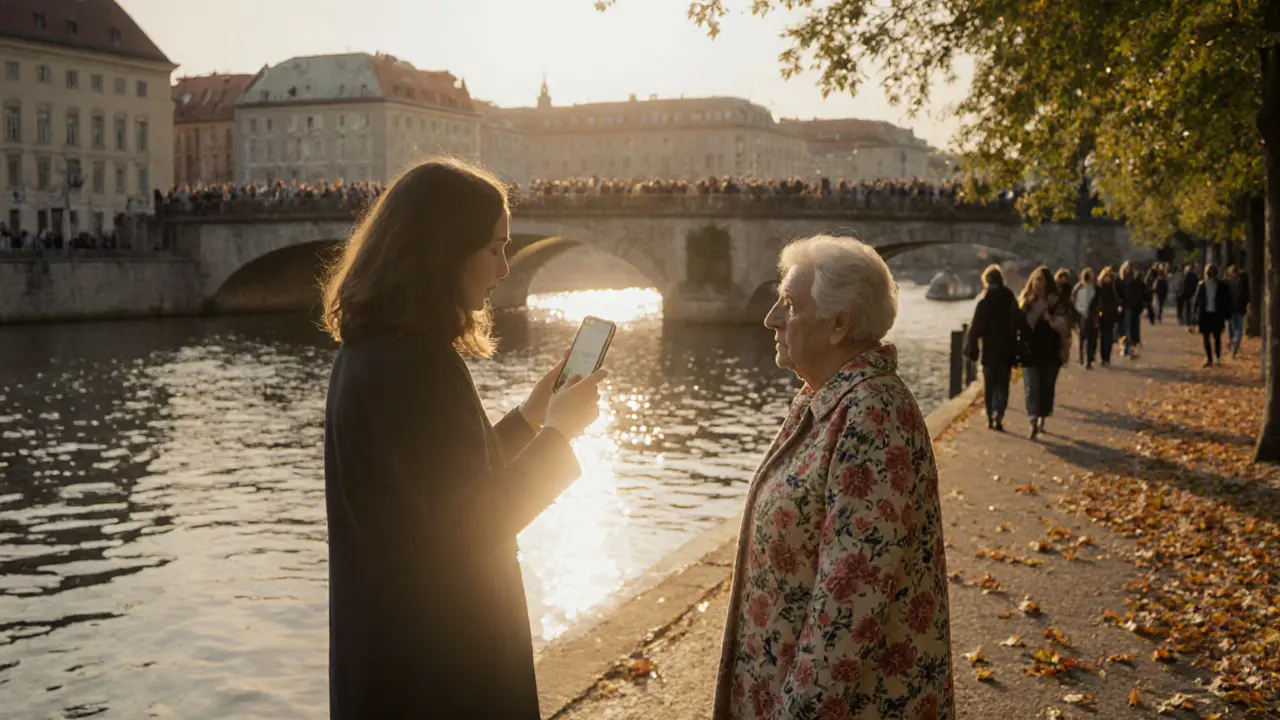
She Changed the Conversation
Before Melanie, Munich’s social media was full of polished photos: perfect pretzels, curated museum visits, staged Oktoberfest outfits. She broke that. Her content felt like a conversation you had with a friend over coffee - messy, honest, sometimes awkward.
She interviewed a Syrian refugee who ran a falafel stand near the train station. She sat with a retired professor who taught philosophy in his living room. She recorded a 17-year-old girl who had just moved from rural Bavaria and didn’t know how to ride the U-Bahn.
These weren’t "viral moments." They were quiet, human moments. And that’s what made them stick.
Why It Mattered
Munich is a city that holds its traditions close. It’s proud, cautious, and slow to change. Tourists see the castles and the beer halls. Locals know the quiet corners - the alley with the cat that sits on the same brick every afternoon, the library that lets you borrow books without a card, the old man who plays accordion on Sundays near the botanical garden.
Melanie didn’t try to sell Munich. She didn’t try to make it look better. She made people see what was already there - and care about it again.
She didn’t have a team. No PR agent. No contract. Just a phone, a willingness to listen, and the courage to say: "I don’t know. Tell me more."
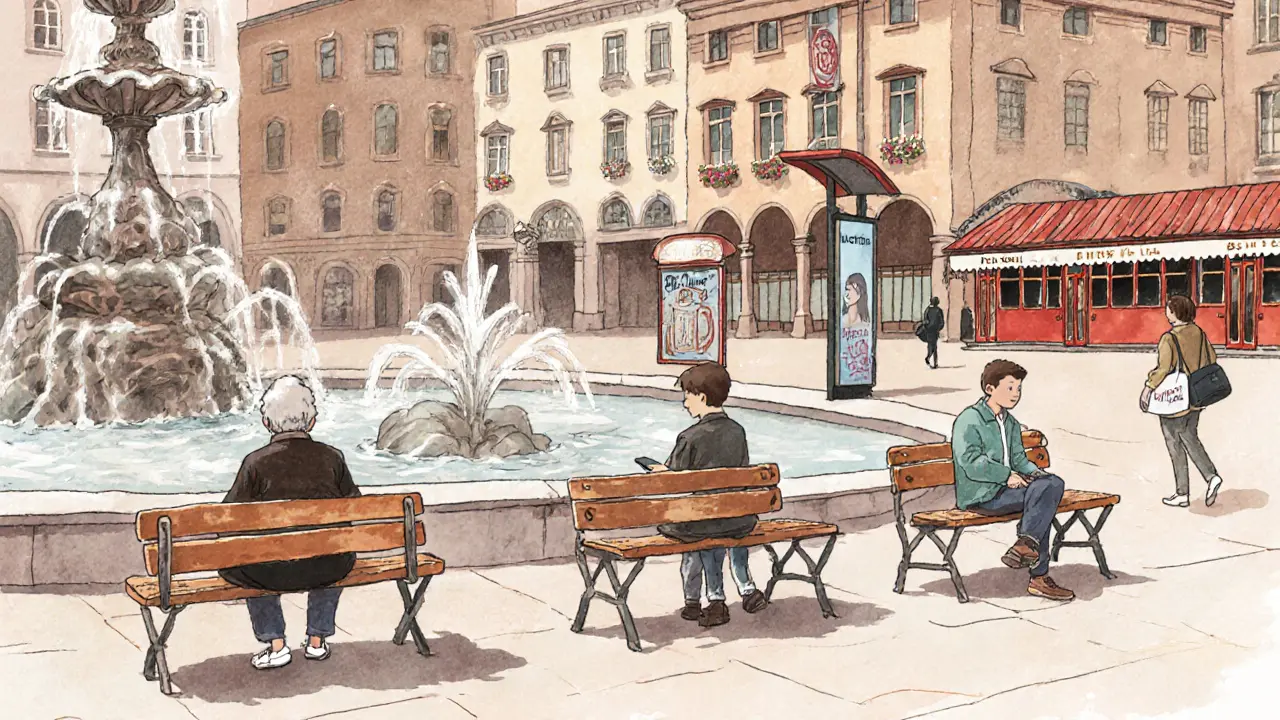
The Ripple Effect
Now, other cities are watching. Berlin’s cultural office reached out to ask if she’d host a similar project there. Hamburg’s mayor invited her to speak at a youth summit. She said no to both.
"I’m not here to be a model," she told a reporter from Der Spiegel. "I’m here because I like it here. If someone else wants to do the same in their city, good. But don’t copy me. Copy the way you feel when you’re really listening to someone."
Her Instagram profile still has fewer than 45,000 followers. But her videos get shared in WhatsApp groups across Bavaria. Grandparents send them to their grandchildren. Teachers use them in classrooms. Tour guides now bring visitors to the bench she helped get installed.
What She Did Was Simple
She showed up. She asked questions. She stayed. She didn’t perform. She participated.
There’s no secret formula. No algorithm hack. No paid promotion. Just presence. And in a world where everyone’s trying to be seen, sometimes the most powerful thing you can do is to truly see someone else.
Munich didn’t change because Melanie Müller became famous. It changed because she made everyone else feel like they mattered too.
Who is Melanie Müller?
Melanie Müller is a German resident of Munich who gained local recognition not through traditional media or marketing, but by engaging authentically with the city’s people and places. She started by posting unfiltered videos of conversations with strangers, which resonated deeply with locals. She is not a celebrity, influencer, or public figure in the conventional sense - she’s a resident who chose to listen and connect.
Did Melanie Müller become famous online?
She became known - but not famous in the viral sense. Her largest single video reached over 1.2 million views, but she never chased views or likes. Her following remains modest at under 45,000 on Instagram. Her influence grew organically through word-of-mouth, local media coverage, and real-world impact - like the benches installed in public spaces after her suggestion.
Did she work with brands or get paid?
No. Melanie never accepted sponsorships, paid partnerships, or branded content. Local businesses began supporting her indirectly - like the brewery that created a beer named after her without asking permission. She didn’t promote them, and they didn’t ask for promotion. The connection was mutual respect, not transaction.
Why did Munich respond to her so strongly?
Munich is a city that values tradition, quiet dignity, and authenticity. Melanie’s approach - listening without agenda, showing up without pretense, and speaking with genuine curiosity - mirrored values locals already held. She didn’t try to change the city; she helped people remember why they loved it. That’s why the city responded not with campaigns, but with benches, beer, and quiet nods of approval.
Is Melanie Müller from Munich?
No, she was not born in Munich. She moved there from a small town in Baden-Württemberg. But she didn’t need to be born there to belong. Her connection to the city came from how she lived in it - by paying attention, asking questions, and staying present. Locals call her "die echte Münchnerin" - the real Munchener - because she treated the city like home.

